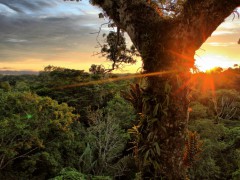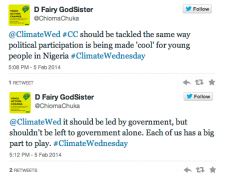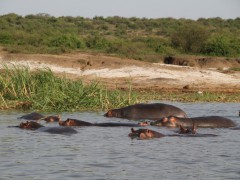Putting a Price on Nature

Biological diversity and healthy eco-systems are what support our planet and our rapidly growing human population, the loss of which would be disastrous on so many levels.
The Global Economic Symposium, has proposed the concept of a New Economy of Nature, which explores efficient ways of valuing natural resources for policy-making, law-making and economic purposes. It has proposed the financialisation of nature; whereby environmental valuation would measure a country’s wealth in terms of natural resources rather than just its capacity to produce and consume goods and services. Not only will a country’s natural resources be valued but so too will its capacity to manage those resources in a sustainable way. Thus by valuing the natural resources and how they are managed by a country, overall, what this hopes to achieve is less environmental degradation because a country’s total value depends on the ability to sustain its environment.

Could the financialisation of nature indeed be a way to protect the world’s ecosystems? Picture: Yasuni National Park in Ecuador. Published by
Sara y Tzunki on Flickr under a CC BY-NC 2.0 license.
However, does adding a monetary value to nature work to reduce the amount of nature being lost? Are international frameworks and conventions capable of establishing binding agreements holding governments to account for actions committed within sovereign borders? Will we need to rethink the sovereign state system?
What are some of the ways around the world that the preservation of the environment is successfully pursued alongside economic growth? Is the market economy the answer? Should we be placing a price on nature? Or are there non-financial ways of managing our biodiversity and ecosystem?
The last 3 global climate summits in Copenhagen, Cancun and Warsaw have shown the limitations of politics 1.0 in a globalized and more complex world. Shouldn’t there also be economic consequences attached to irresponsible corporate behaviour?
The continuing pursuit of fossil fuels to power our world, such as fracking in the United States, coal and coal seam gas in Australia and the exploitation of natural resources in Siberia, are not novel approaches to addressing our future energy needs and our environmental dilemma. If we continue to rely on fossil fuels and fail to achieve global governance on this issue, will we face a global crisis?
Below this article you will find multiple perspectives from the Future Challenges blogger network on “Putting a Price on Nature”.
Tags: BIODIVERSITY, CLIMATE CHANGE, economics, economy, ENVIRONMENT, Global Economic Symposium, nature




